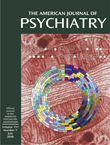Protective Factors Against Suicidal Acts in Major Depression: Reasons for Living
Abstract
OBJECTIVE: Over 30,000 people a year commit suicide in the United States. Prior attempted suicide and hopelessness are the most powerful clinical predictors of future completed suicide. The authors hypothesized that “reasons for living” might protect or restrain patients with major depression from making a suicide attempt.METHOD: Inpatients with DSM-III-R major depression were assessed for depression, general psychopathology, suicide history, reasons for living, and hopelessness. Of the 84 patients, 45 had attempted suicide and 39 had not.RESULTS: The depressed patients who had not attempted suicide expressed more feelings of responsibility toward family, more fear of social disapproval, more moral objections to suicide, greater survival and coping skills, and a greater fear of suicide than the depressed patients who had attempted suicide. Scores for hopelessness, subjective depression, and suicidal ideation were significantly higher for the suicide attempters. Reasons for living correlated inversely with the combined score on these measures, considered an indicator of “clinical suicidality.” Neither objective severity of depression nor quantity of recent life events differed between the two groups.CONCLUSIONS: During a depressive episode, the subjective perception of stressful life events may be more germane to suicidal expression than the objective quantity of such events. A more optimistic perceptual set, despite equivalent objective severity of depression, may modify hopelessness and may protect against suicidal behavior during periods of risk, such as major depression. Assessment of reasons for living should be included in the evaluation of suicidal patients.



